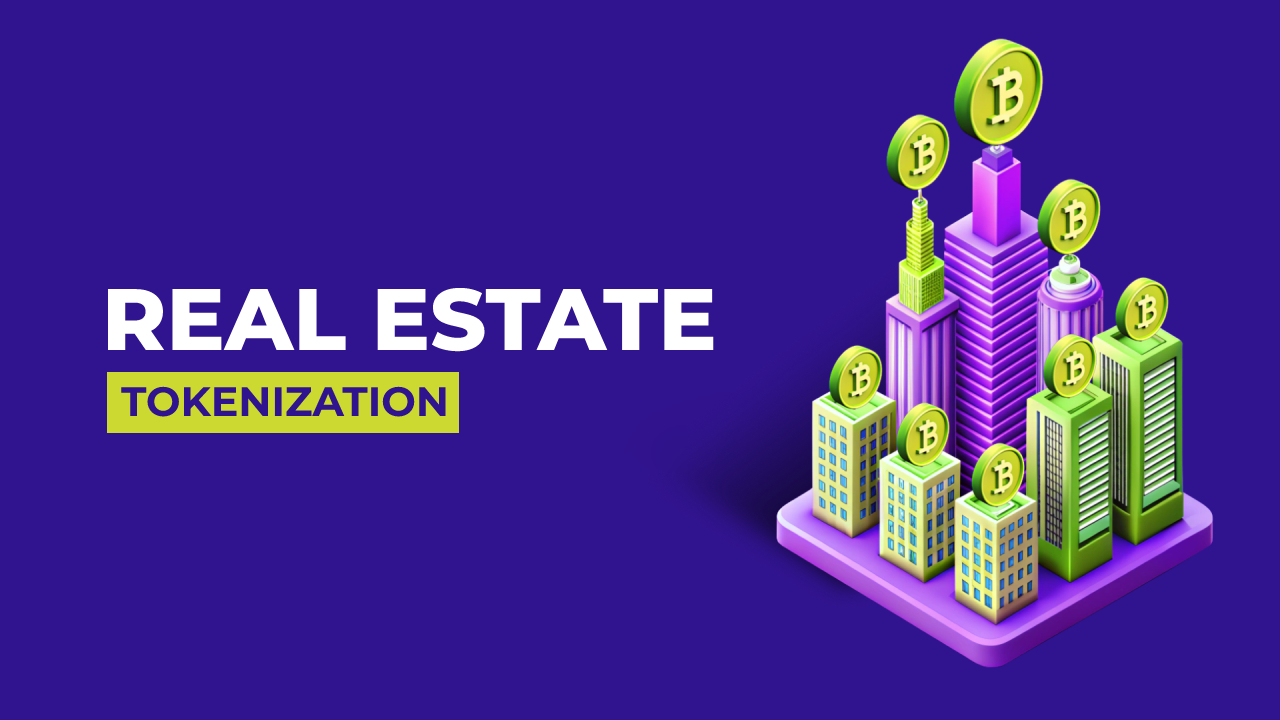As the digital world continues to expand, real estate tokenization stands at the forefront of transforming how we invest in and manage property. This revolutionary approach leverages blockchain technology to convert property assets into digital tokens, offering unprecedented levels of accessibility, liquidity, and transparency. As we look towards the future, several key trends and predictions are poised to shape the evolution of real estate tokenization. This blog explores these future predictions and their potential impact on the real estate industry.
1. Widespread Adoption and Market Growth
The future of real estate tokenization is marked by significant growth in adoption across global markets. As blockchain technology matures and becomes more integrated into mainstream financial systems, more real estate investors and property owners are expected to embrace tokenization. This trend will likely be driven by the increasing demand for fractional ownership and the need for more liquid and accessible investment opportunities.
Tokenization will democratize real estate investments, allowing smaller investors to participate in high-value properties that were previously accessible only to wealthy individuals or institutional investors. This shift will lead to a more inclusive real estate market, with a broader range of participants and a more diverse investment base.
2. Enhanced Regulatory Frameworks
Regulation is a crucial aspect of real estate tokenization, and the future will see the development of more comprehensive and standardized regulatory frameworks. Governments and regulatory bodies are likely to establish clearer guidelines and legal standards for tokenized real estate transactions. This evolution will provide greater legal certainty and protection for investors and property owners.
As regulatory frameworks become more defined, they will address key issues such as security, compliance, and transparency in tokenized real estate transactions. This will help mitigate risks associated with fraud and market manipulation, further enhancing the credibility and attractiveness of real estate tokenization.
3. Integration with Decentralized Finance (DeFi)
The convergence of real estate tokenization with decentralized finance (DeFi) is expected to be a significant trend in the coming years. DeFi platforms, which offer financial services without intermediaries, will increasingly integrate with tokenized real estate assets. This integration will enable innovative financial products and services, such as decentralized lending and borrowing against tokenized real estate.
Investors will benefit from enhanced liquidity, as tokenized real estate assets can be easily traded or used as collateral within DeFi ecosystems. This will further bridge the gap between traditional real estate markets and the rapidly evolving world of decentralized finance.
4. Improved Liquidity and Market Efficiency
One of the primary advantages of real estate tokenization is the increased liquidity it offers. Traditional real estate transactions are often slow and cumbersome, with long settlement periods and high transaction costs. Tokenization streamlines the process by enabling fractional ownership and faster transactions through blockchain technology.
In the future, we can expect even greater improvements in market efficiency as technology advances. Enhanced liquidity will attract more investors and facilitate more frequent trading of real estate assets. This increased market activity will contribute to more accurate pricing and valuation of properties, benefiting both buyers and sellers.
5. Growth of Secondary Markets and Exchanges
As real estate tokenization gains traction, secondary markets and exchanges for tokenized real estate assets are likely to emerge and expand. These platforms will provide a marketplace for buying, selling, and trading tokenized real estate assets, further enhancing liquidity and market accessibility.
The development of specialized exchanges for tokenized real estate will enable investors to easily access a diverse range of property assets and investment opportunities. These exchanges will also offer additional features, such as automated trading and portfolio management tools, to support the needs of investors.
6. Advances in Smart Contracts and Automation
Smart contracts play a pivotal role in real estate tokenization by automating transactions and ensuring compliance with predefined conditions. The future will see continued advancements in smart contract technology, leading to more sophisticated and efficient contract execution.
Enhanced automation through smart contracts will streamline various aspects of real estate transactions, including property transfers, rental agreements, and revenue distribution. This will reduce administrative overhead and minimize the potential for errors or disputes, making the process of buying, selling, and managing real estate assets more seamless.
7. Greater Transparency and Security
Transparency and security are critical components of real estate tokenization. Blockchain technology provides a decentralized and immutable ledger that enhances transparency by recording all transactions and ownership changes. This ensures that all parties involved have access to accurate and up-to-date information.
In the future, advancements in blockchain technology and cryptographic security will further strengthen the integrity of tokenized real estate transactions. Enhanced security measures will protect against hacking and fraud, providing greater confidence to investors and property owners.
8. Customization and Personalization of Investment Opportunities
Real estate tokenization will enable greater customization and personalization of investment opportunities. Investors will have the ability to select and invest in specific properties or asset classes based on their preferences and risk profiles. This level of personalization will cater to the diverse needs of investors and allow for more tailored investment strategies.
As the market matures, platforms offering tokenized real estate investments will likely provide advanced filtering and analytics tools to help investors identify opportunities that align with their individual goals and preferences.
9. Integration with IoT and Smart Buildings
The integration of real estate tokenization with Internet of Things (IoT) technology and smart buildings is expected to become more prevalent. IoT devices and sensors can provide real-time data on property conditions, usage, and performance. This data can be incorporated into tokenized real estate platforms to offer additional insights and value to investors.
Smart buildings equipped with IoT technology will enable more efficient property management and maintenance, contributing to the overall value and attractiveness of tokenized real estate assets. Investors will benefit from increased transparency and operational efficiency, enhancing their investment experience.
10. Expansion into Emerging Markets
As real estate tokenization gains momentum, we can expect its adoption to expand into emerging markets with growing economies and increasing real estate activity. Tokenization will provide a means for investors to access opportunities in regions with high growth potential, offering diversification and new avenues for investment.
Emerging markets will benefit from the influx of capital and investment driven by real estate tokenization. This will contribute to the development of local real estate sectors and create new opportunities for both investors and property developers.
Conclusion
The evolution of real estate tokenization is poised to bring transformative changes to the real estate industry. As technology advances and adoption grows, we can expect to see significant developments in market accessibility, liquidity, regulation, and integration with other financial systems. The future of real estate tokenization promises a more inclusive, efficient, and innovative investment landscape, offering exciting opportunities for investors and property owners alike. As these trends unfold, staying informed and adapting to the evolving landscape will be key to capitalizing on the benefits of real estate tokenization.




